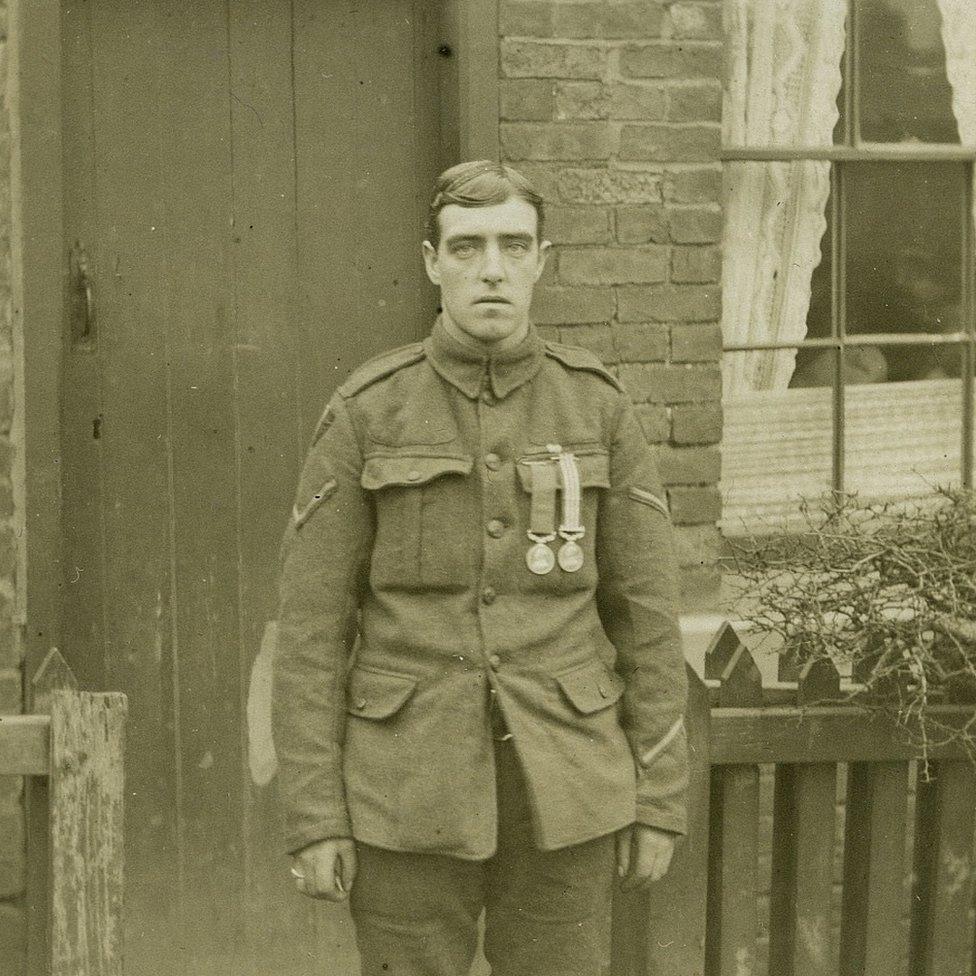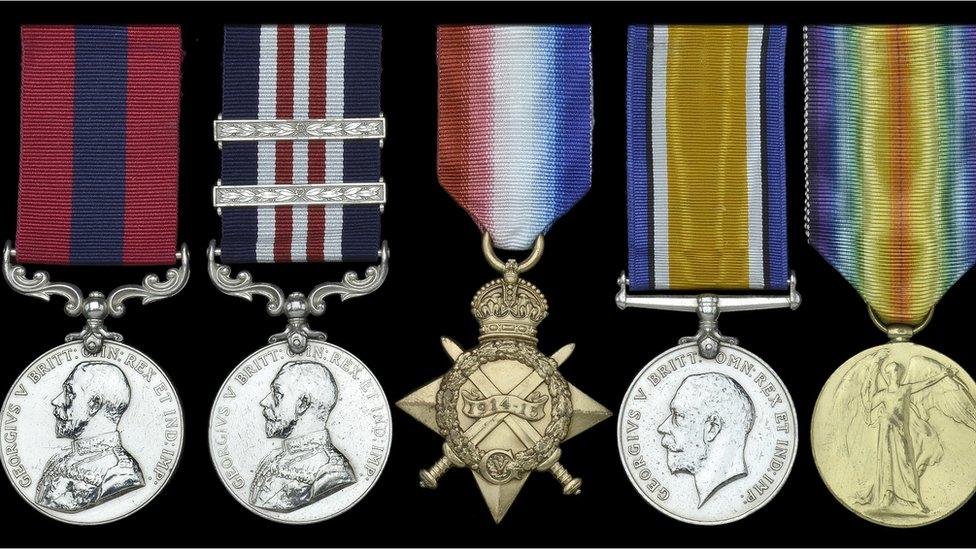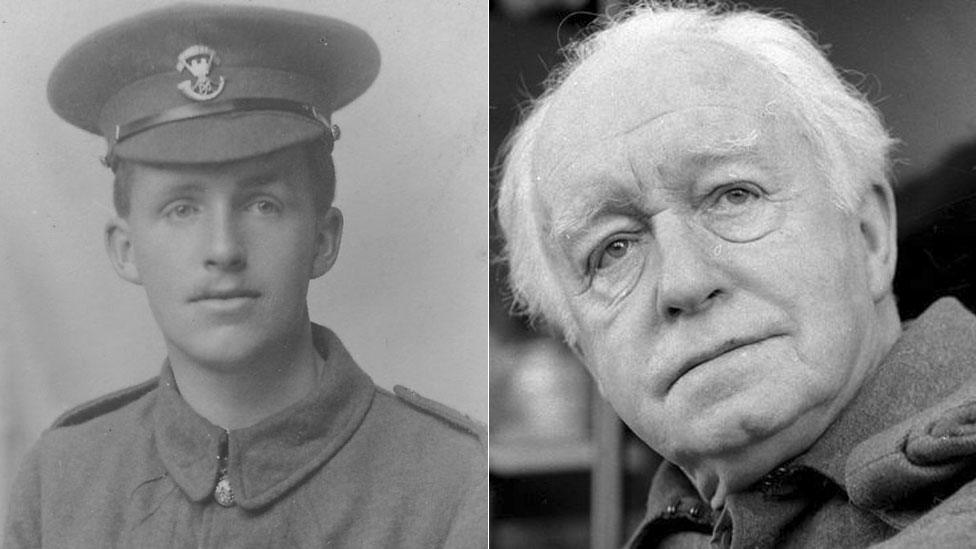Medals of WWI soldier William Peniston fetch £14,000
- Published

William Peniston wearing his Distinguished Conduct Medal, the Military Medal and a Bar
The medals of a World War One soldier who was decorated for gallantry three times in three weeks - probably without firing a shot - have been auctioned.
Nottinghamshire miner William Peniston joined the Kings Royal Rifle Corps and became a stretcher bearer.
During the slaughter of the Somme, he was awarded the Distinguished Conduct Medal, the Military Medal and a Bar.
The "remarkable" collection was valued between £8,000 and £10,000 but sold for £14,000 at Dix Noonan Webb in London.
Live updates and more from Nottinghamshire.
The collection of medals also includes three campaign medals and a St John Ambulance Service award from World War Two.

William Peniston's medals

Distinguished Conduct Medal (for a single act of bravery)
Military Medal, with Second and Third Award Bars (representing three separate acts of bravery)
1914-15 Star (for all servicemen enlisted in this period)
British War Medal (for all officers and men serving during the war)
Victory Medal (for all personnel mobilised during the war)
St John Service Medal 1940 (not pictured)

William was born in Sheffield in 1889, but was a miner at Thoresby colliery when war broke out.
In 1916, his unit was thrown into the Battle of the Somme.
Fragmentary records indicate Lance Corporal Peniston was awarded his first Military Medal on 26 August 1916.
He was subsequently awarded the Distinguished Conduct Medal on 11 September and the Military Medal again (referred to as a Bar) on 15 September.
The second Military Medal Bar, making a total of four awards for gallantry, was also won at the Somme, but the date is unclear.
Prisoner of War
Vere Hayes, chairman of trustees at the Royal Green Jackets (Rifles) Museum, said: "This is a remarkable collection.
"To win any one of these awards would mark a man as very brave, but to have four, especially in such a short space of time, shows him to be of particular valour.
"It is perhaps all the more remarkable as, being a stretcher bearer, he would not have carried a rifle to fire back."
William's citation for the Distinguished Conduct Medal - second only to the Victoria Cross - reads: "His company came under enemy barrage fire which caused considerable casualties, and he remained behind under heavy shelling, attending to the wounded, and helped to carry them to the aid post".
Also in the auction was a personal letter showing he ended the war as a prisoner of the Germans.
He returned to Thoresby Colliery, where he worked until his retirement and died in neighbouring Edwinstowe on 10 October 1974, aged 85.
- Published5 February 2016
